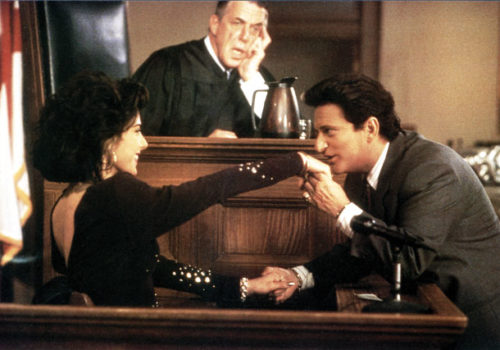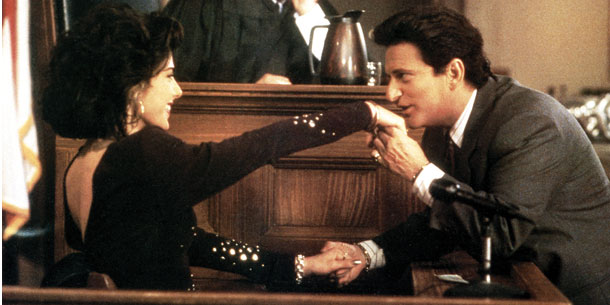
Pictorial Press, Ltd./Alamy Stock Photo
I’m a lawyer, and I’m a big fan of lawyers and the law. Lawyers work hard to keep society’s playing field level and achieve fair results on behalf of their clients. Yes, I’ve heard the lawyer jokes. Some are wickedly funny. But, as with blonde jokes or ethnic jokes, when they rely on a stereotype, the characterizations are bound to be inaccurate. To use a legal phrase, they’re not supported by the evidence.
Let’s start with the fact that lawyers are held to rigorous standards. The rules governing attorney conduct require competence, diligence, confidentiality, honesty, and avoidance of conflicts of interest. They also concern, for example, a lawyer’s duties to clients, fees, and respect for the court system and third parties. Yes, there are a few bad apples, but these rigorous standards concerning professionalism are overwhelmingly observed.
The principles go back to the eight-century-old Magna Carta, a fountainhead document recognizing that in a democracy, the rule of law trumps the power of monarchs. It is the lawyer’s duty to foster the rule of law. Most lawyers take this responsibility very seriously.
So, why the negative reputation? Frequently, attorneys act as the representatives of their clients in a conflict. In such situations, I think that most people feel very good about their own lawyer — it’s the other lawyer they have a problem with. Such antagonism is understandable; the lawyer on the other side is standing between you and your objectives. But it’s important to realize that this kind of debate, with each side on equal footing, is fundamental to a free society. Our system works the way it does because we allow both sides to a dispute to fully present their claims, defenses, and positions, and we also allow each side to question and argue against the legitimacy of the other side’s claims. It only works because the rules apply to everyone. Without the rules, it is a melee.
When it is not your business that has been defrauded or when it is not your freedom that is in jeopardy, it is understandable to be dismissive of the detailed rules that have developed over hundreds of years. But it is exactly these rules that protect you when you do have a conflict.
Another knock on lawyers is that sometimes they can seem cruel, such as when they doggedly cross-examine a witness. If you are that witness, you might feel unjustly attacked. But if this same attorney were picking apart your adversary’s testimony, you would probably feel vindicated. Case in point: In My Cousin Vinny, we were all rooting for Joe Pesci and Marissa Tomei to prevail on behalf of the young boys who were unjustly accused of murder. But what if it were your relative who had been shot and killed? The evidence seemed to point to the guilt of the boys. A movie from this point of view would have been much different.
In My Cousin Vinny, of course, the defendants were innocent. But what if they weren’t? Some people wonder how lawyers can defend someone they believe has committed a crime. Lawyers actually have a responsibility to do this. They often need to make the government prove its case, as it is required to do. If we do not insist that everyone is innocent until proven guilty, then everyone’s freedom is at risk. The lawyer represents not only the interests of the client, but also the integrity of the judicial system.
Likewise it can seem that lawyers have low ethical standards because they may argue cases that they don’t believe in. However, a lawyer’s personal beliefs are not what is important in a litigated controversy. If a lawyer lets his or her opinion interfere in the job, then that lawyer is not being an effective advocate. When you hire a lawyer, you want that lawyer to fully and lawfully represent your interests, unfettered by personal biases.
Another knock against lawyers is that they’re expensive. It’s commonly believed that lawyers run up the hours to spend (or rather waste) your money. Yes, defending a case is expensive, but no, lawyers don’t cheat on their hours. Not the lawyers I know, and not the lawyers most of you know. Legal dilemmas are complicated. They often involve confusing and disputed situations. To do the job well takes time. That said, every client has the right to be informed in advance of estimated fees. The final cost of presenting a case should come as no surprise.
Ask your lawyer why he or she became a lawyer and the answer will most likely be some combination of wanting to help people, having a respectable career, and having an interesting and challenging profession. Perhaps the family joke was that the lawyer-to-be liked to argue, but the reality is probably that the person paid attention to detail. In my experience, lawyers are attracted to law for good reasons, and lawyers are, as a demographic, good people.
If it were just a matter of tolerating and even laughing at a joke at the expense of the legal profession, none of this would matter. But when the system and the countless people who honor the system — not just lawyers, but judges, court deputies, and stenographers — are maligned, it undermines people’s confidence in the rule of law. That confidence has been hard-earned. Would-be lawyer bashers should think twice before they impugn the legal system. Our very democracy and their freedom depend on it.
Lewis Tesser is an attorney in private practice in Manhattan. He is the former president of the New York County Bar Association, the editor-in-chief of The New York Rules of Professional Conduct (Oxford University Press), and a Fellow of the American Bar Association.
This article is featured in the September/October 2017 issue of The Saturday Evening Post. Subscribe to the magazine for more art, inspiring stories, fiction, humor, and features from our archives.
Become a Saturday Evening Post member and enjoy unlimited access. Subscribe now



